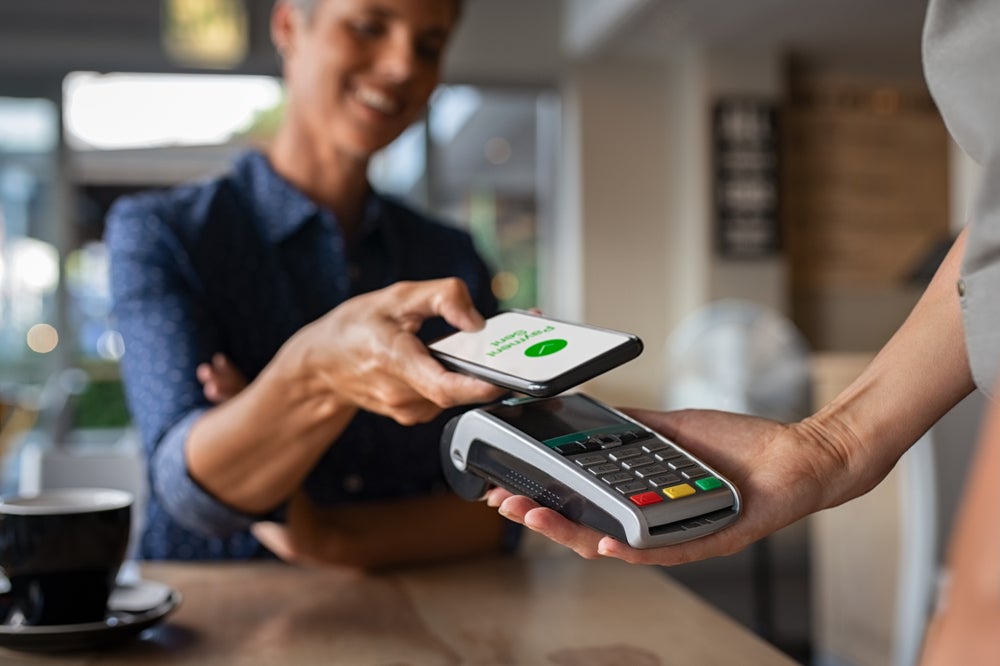
Fintech has unleashed a golden age of innovation in consumer financial services. Highly specialised, free from legacy, and often able to bypass bank regulation, new entrants have gone after every piece of the banking value chain, reducing friction and addressing unmet needs. Initiatives like the Second Payment Services Directive (PSD2) embolden new entrants further, enabling a variety of new business models that cut across industry lines and provider types.
Based on the growth of global fintech, GlobalData has identified the companies that are likely to emerge (or remain) as leaders in payments, across five categories – mobile payments, POS payments, currency exchange, virtual currencies, and digital wallets.
Leading mobile payments companies
Below are some of the leading mobile payments companies as identified by GlobalData.
Paytm
Paytm is India’s undisputed leader in payments with an estimated market share of 49%. It offers a range of services including mobile recharges, utility bill payments, loan payments, and insurance and banking. It also has a sizable market share in e-commerce (around 10%), although here it faces formidable competition from the likes of Amazon and WalmartFlipkart.
Paytm is aiming to be the Indian Alibaba, combining a digital payments platform with an online marketplace for small retailers.
M-Pesa
M-Pesa is a mobile money service in Kenya. Dismissed when it was originally launched in 2007 by Kenyan mobile network operator Safaricom (40% owned by Vodafone), by 2012 there were more mobile money account holders than bank account holders in Kenya (17 million). In January 2019, Safaricom launched Fuliza, an M-Pesa overdraft facility.
How well do you really know your competitors?
Access the most comprehensive Company Profiles on the market, powered by GlobalData. Save hours of research. Gain competitive edge.

Thank you!
Your download email will arrive shortly
Not ready to buy yet? Download a free sample
We are confident about the unique quality of our Company Profiles. However, we want you to make the most beneficial decision for your business, so we offer a free sample that you can download by submitting the below form
By GlobalDataM-Pesa did try to launch in South Africa but saw lower adoption due to stricter regulation, a much stronger incumbent banking sector, and strong new digital-only propositions (including TymeBank and Discovery Bank).
Leading POS payments companies
Listed below are some of the leading POS payments providers and their position within fintech.
PayPal
PayPal acquired iZettle in July 2018. The combination marries iZettle’s in-store expertise, recognized brand, and digital marketing strength with PayPal’s global scale. The acquisition will mean PayPal has an in-store presence in 11 markets in Europe and Latin America.
PayPal also owns Venmo, the US P2Ppayments company, and Swift Financial, a provider of business loans. In June 2019, PayPal made a €56m investment in Tink, part of an ongoing investment with the firm, which will see PayPal make Tink’s aggregation services available to PayPal users. Taken together, these acquisitions begin to resemble a full suite of banking products and services.
Square
Square started out as a credit card reading company for small businesses, but has since steadily expanded into to other services, such as digital money transfers (including a Bitcoin exchange) and retail installment loans, and is now seeking a banking license. The new venture would focus on lending to small businesses.
In May 2019, Square announced it had acquired Eloquent Labs, an AI start-up helping to improve the customer service experience. However, Square’s core business is now under pressure following the merger between Fiserv and First Data, by virtue of the new entity’s sheer size.
SumUp
Headquartered in London, SumUp launched in 2011 to provide iPad-based mobile POS payments for small businesses. It reached unicorn status in 2018, and has reached over 1.5 million customers across 31 different markets. In July 2019, SumUp secured a $371m loan to drive the development of new services.
The company recently broadened its product portfolio through the acquisition of Debitoor (accounting and invoicing) and Shoplo (e-commerce and marketplaces).
Leading currency exchange companies
Some of the leading currency exchange providers and their position within fintech, as identified by GlobalData, are detailed below.
TransferWise
TransferWise is a UK-based fintech unicorn valued at around $3.5bn. It has grown rapidly since its launch in 2011, hitting profitability within six years of launch. It now claims six million customers. Customers can make transfers in around 40 currencies to more than 50 countries. In 2018, TransferWise became the first non-bank to become a direct member of the UK’s Faster Payments scheme.
TransferWise has its own API, and banks and other third parties can use this to integrate TransferWise payment capabilities into their own propositions (as many new digital banks have).
Leading virtual currencies companies
Below are some of the leading virtual currencies and their position within fintech, according to GlobalData.
Bitcoin
Bitcoin launched over a decade ago, peaking at $20,000 per Bitcoin in December 2017 and falling steadily since then. This is mainly because Bitcoin was expected to get big bank backing. When that did not materialise by 2018 a number of big investors began to exit holdings.
Bitcoin is a decentralised technology that nobody controls, which creates enormous engineering challenges in security and scalability that are being solved using complex cryptography. This is a decades-long project.
Coinbase
Coinbase is a secure platform that makes it easy to buy and sell virtual currencies like Bitcoin, Ethereum, and Litecoin. Headquartered in California, the company was recently valued at $8bn.
However, amid a slump in prices for cryptos in early 2019 it laid off more than a dozen staff in its Chicago office. In an effort to make cryptocurrency payment and trading more accessible, the company launched the Coinbase Card. Available in Spain, Germany, France, Italy, Ireland, the Netherlands, and the UK, the card lets users spend cryptocurrencies online and at merchants as easily as cash.
Leading digital wallet companies
Here’s a list of some of the leading digital wallet providers and their position within fintech, as identified by GlobalData.
Amazon Pay
Amazon reports 300 million active users on Amazon Pay, has already lent north of £3bn to small businesses, and is reportedly in talks with JP Morgan Chase to launch a co-branded checking account. But this is primarily about reducing friction in consumption of its primary services rather than disrupting banking.
Amazon can provide the customer interface and allow for quick loan approval using advanced data analytics; if approved, the bank is left to raise funds and manage the loan.
Apple Pay
Apple Pay was originally launched in 2014 in the US. Within three weeks, over three million credit cards were registered within the app. Today Apple Pay has more than 400 million users worldwide representing 43% of global iPhone users. Apple Card, a credit card launched in partnership with Mastercard and Goldman Sachs, will leverage the success of Apple Pay and be available as a built-in feature in the Apple Wallet application on iPhones.
Customers in the US will able to sign up for Apple Card in the wallet app and within minutes start using the virtual card within Apple Pay.
GrabPay
GrabPay is the digital payments service from Grab Financial –a unit of Southeast Asian ride-hailing giant Grab–that is rolling out various financial services across the region. In addition to rides, GrabPay covers online and offline merchants in selected markets in Southeast Asia, and has teamed up with partners to add SME loans, insurance, cross-border transfers, and more.
This expansion is seen as “glue” to keep its core app sticky and build new data sources and revenue streams –particularly the SME sector, which struggles to access credit. In 2018, Grab bought out Uber’s regional business in Southeast Asia.
Line Pay
Attempting to emulate the success of digital wallets elsewhere in Asia, leading messaging app Line is making a big push into fintech by driving mobile payments in cash-heavy Japan. Line has ambitious goals for the number of stores that accept Line Pay.
In June 2019, Line Pay announced a partnership with Visa that will give Line Pay app users the ability to transfer money, make online purchases, pay bills, book travel, and order food.
This is an edited extract from Fintech – Thematic Research report produced by GlolbalData Thematic Research.










